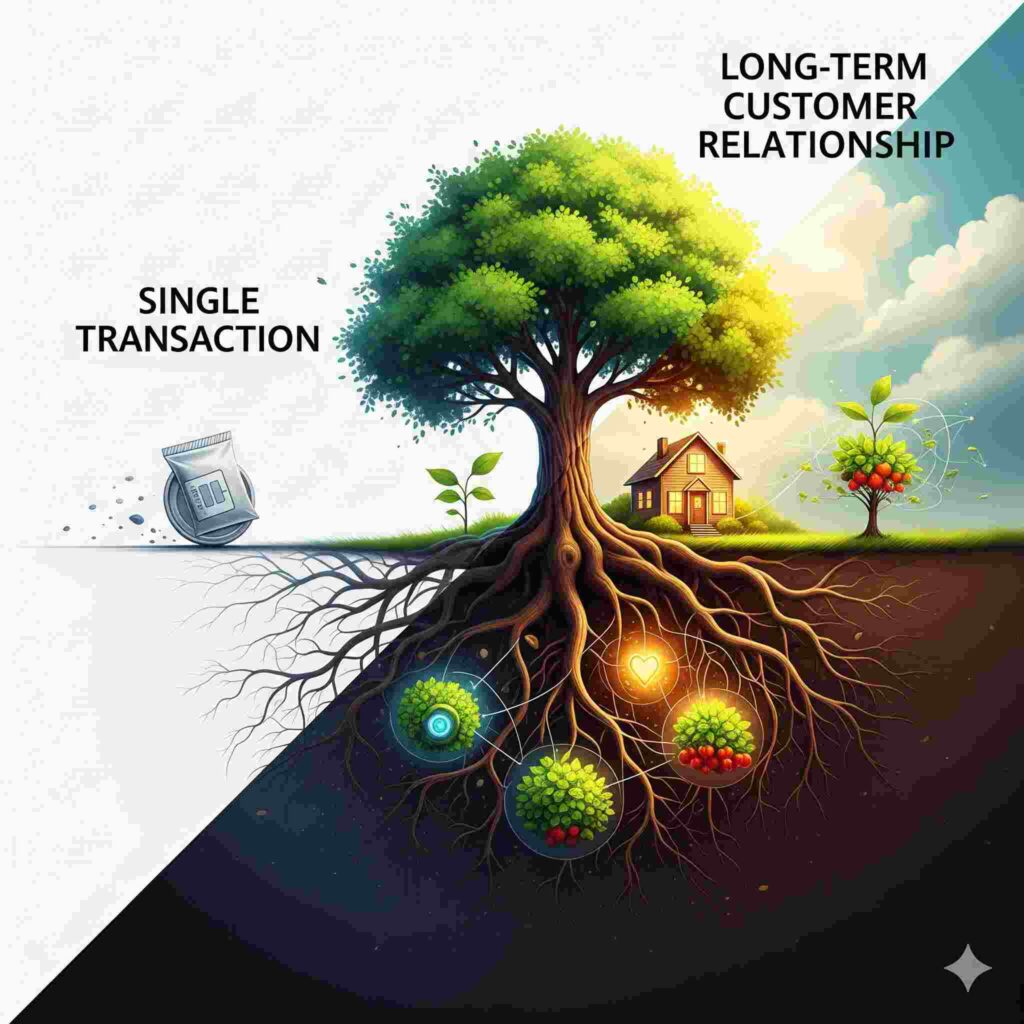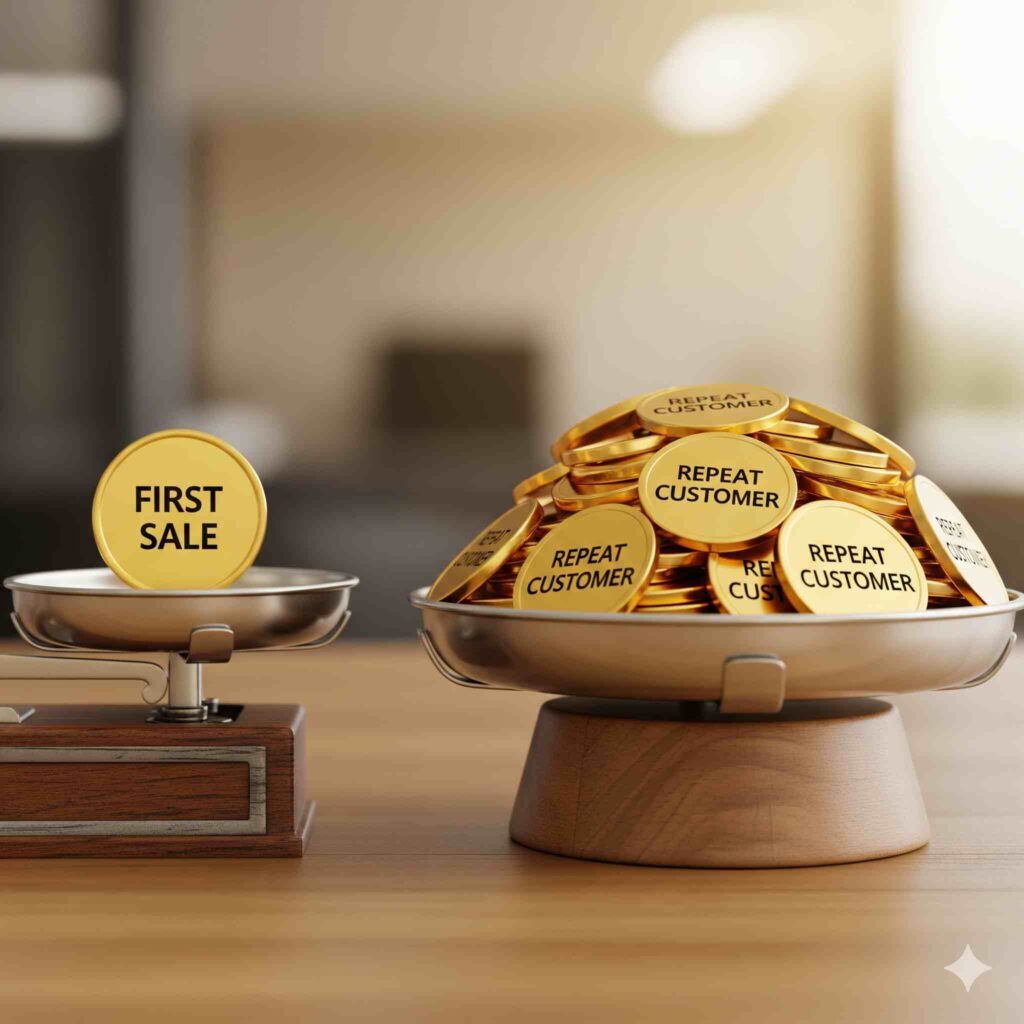In the fast-paced world of business, first sales often steal the spotlight. They’re exciting, validating and signal that your product or service has market appeal. But if you’re building a business for the long haul, it’s time to shift your focus. Repeat customers are the true engine of sustainable growth, profitability and brand resilience.
Let’s dive into why customer retention should be your top priority—and how nurturing existing relationships can yield far greater returns than chasing new ones.
The Real Value of Repeat Customers
1. Lower Acquisition Costs
Acquiring a new customer can cost five to seven times more than retaining an existing one. Think about the resources poured into marketing campaigns, lead generation and sales funnels. Once someone has already bought from you, the hard part is done. Now, it’s about keeping them engaged.
Repeat customers already trust your brand. You don’t need to convince them from scratch. That means less spending and more efficient use of your marketing budget.
2. Higher Lifetime Value (LTV)
Customer lifetime value is a metric that estimates how much revenue a customer will generate over their relationship with your brand. Repeat buyers tend to spend more over time, especially if they’re satisfied with your product and service.
According to research, loyal customers are worth up to 10x more than their first purchase. They’re not just buying once—they’re coming back again and again, often increasing their order size or frequency.
3. Better Conversion Rates
Marketing to existing customers is far more effective. While conversion rates for new leads hover around 1-3%, campaigns targeting existing customers can see conversion rates of 60-70%.
Why? Because repeat customers already know your brand. They’ve had a positive experience and they’re more likely to respond to promotions, upsells and new product launches.
4. Word-of-Mouth and Referrals
Happy customers talk. They leave reviews, share your brand on social media, and recommend you to friends and family. This kind of organic marketing is priceless—and it often comes from your most loyal buyers.
Repeat customers become brand advocates. Their trust in your business translates into credibility for others, helping you attract new customers without spending a dime.

Why First Sales Can Be Misleading
1. One-Time Buyers Don’t Build Businesses
It’s tempting to celebrate every new sale, but if those customers never return, your business is constantly starting from zero. That’s exhausting—and expensive.
A business built on repeat customers has momentum. It grows steadily, predictably and with less volatility.
2. First Sales Don’t Guarantee Loyalty
Just because someone buys once doesn’t mean they’re hooked. They might have been lured by a discount, a trend or curiosity. Without a strategy to retain customers, that first sale could be your last interaction with them.
Building a Repeat Customer Strategy
1. Deliver Exceptional Customer Service
The experience matters. From the moment someone lands on your website to post-purchase support, every touchpoint should be smooth, helpful and memorable.
Customer satisfaction is the foundation of loyalty. If people feel valued, they’ll come back.
2. Personalize Communication
Use data to understand your customers’ preferences, behaviors and needs. Then tailor your messaging accordingly.
Whether it’s personalized emails, product recommendations or birthday discounts, personalization makes customers feel seen—and that builds trust.
3. Create a Loyalty Program
Reward your customers for sticking around. Offer points, exclusive discounts, early access to new products or even surprise gifts.
A well-designed loyalty program incentivizes repeat purchases and makes customers feel appreciated.
4. Ask for Feedback and Act on It
Engage your customers by asking for their opinions. Use surveys, reviews and direct outreach to understand what’s working and what’s not.
When customers see that you’re listening and improving, they’re more likely to stay loyal.
5. Stay Consistent
Consistency in product quality, service and communication builds reliability. If customers know what to expect—and you deliver every time—they’ll keep coming back.
The Compounding Power of Loyalty
Think of repeat customers as compounding interest. The longer they stay with you, the more valuable they become—not just in terms of revenue but in brand equity, referrals and resilience.
A loyal customer base can help you weather economic downturns, competitive threats and market shifts. It’s your safety net and your growth engine.
Real-World Examples
- Amazon Prime: Amazon’s success isn’t just about attracting new buyers—it’s about turning them into repeat customers through fast shipping, exclusive deals and personalized recommendations.
- Starbucks Rewards: Starbucks built a massive loyalty program that encourages repeat visits with points, free drinks and mobile ordering convenience.
- Apple Ecosystem: Apple users often stick with the brand because of the seamless integration between devices, consistent quality and strong customer support.
These companies understand that repeat customers are the backbone of their business—and they invest heavily in keeping them happy.
Frequently Asked Questions (FAQ)
Q1: What is the difference between customer acquisition and retention?
Customer acquisition is the process of attracting new buyers, while customer retention focuses on keeping existing ones engaged and loyal.
Q2: How can I measure repeat customer behavior?
Track metrics like purchase frequency, customer lifetime value and retention rate. Tools like Google Analytics, CRM platforms and email marketing software can help.
Q3: What industries benefit most from repeat customers?
Almost all industries benefit—from e-commerce and hospitality to SaaS and retail. The key is building trust and delivering consistent value.
Q4: Is it ever okay to focus on first sales?
Yes, especially when launching a new product or entering a new market. But long-term success depends on converting those first-time buyers into repeat customers.
Final Thoughts
While first sales are important, they’re just the beginning. The real magic happens when customers come back—again and again. Repeat customers are more profitable, easier to convert and more likely to spread the word about your brand.
So if you’re serious about building a business that lasts, shift your focus. Invest in relationships, not just transactions. Because in the end, loyalty isn’t just good for business—it’s essential.

